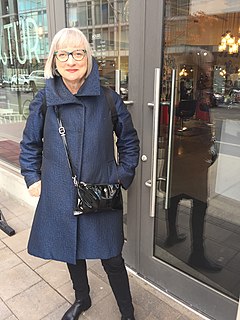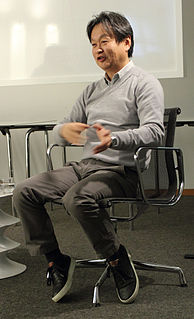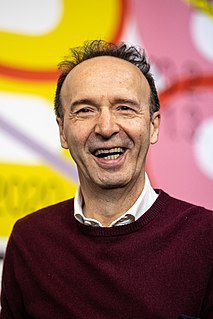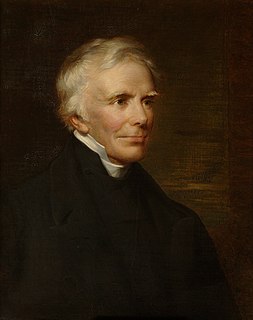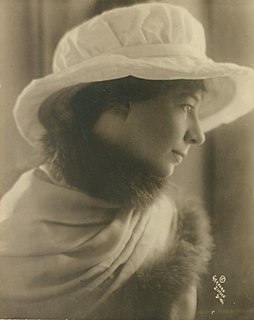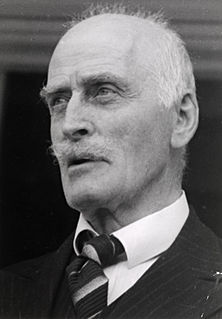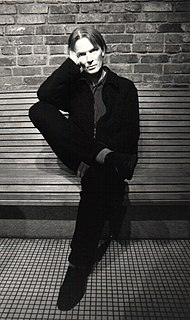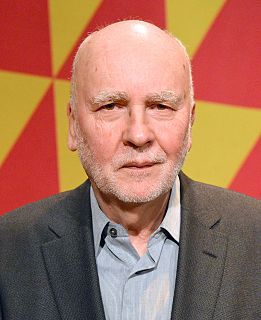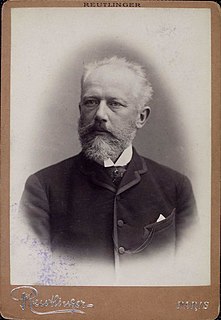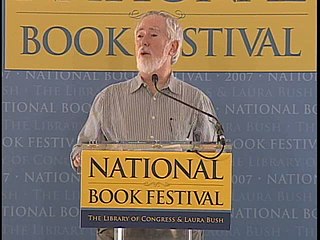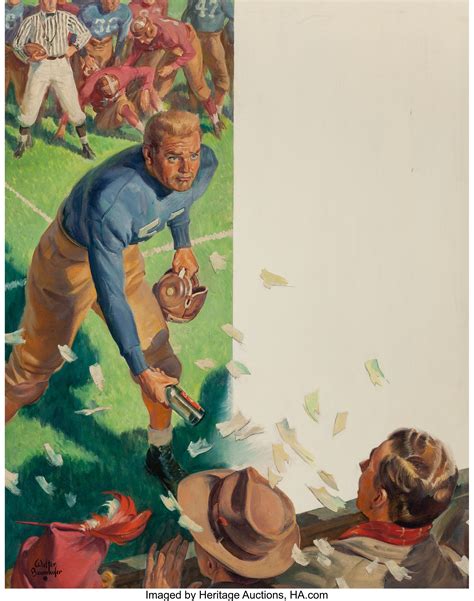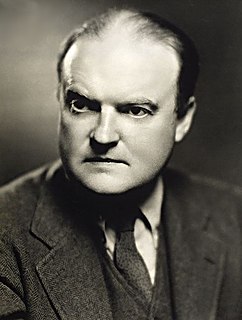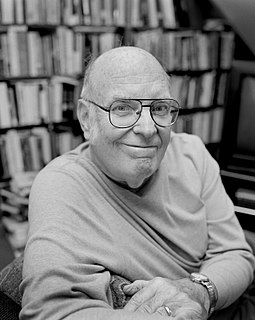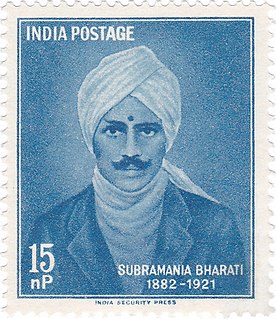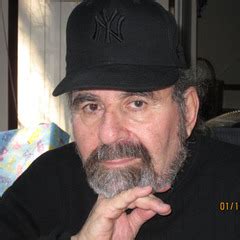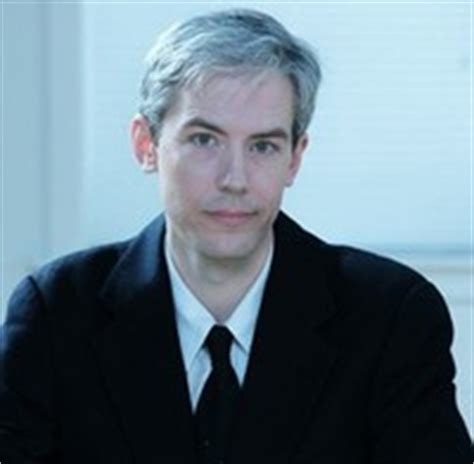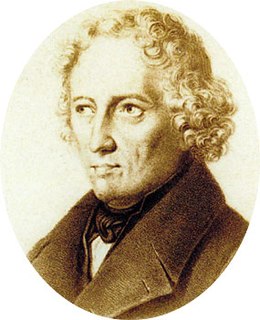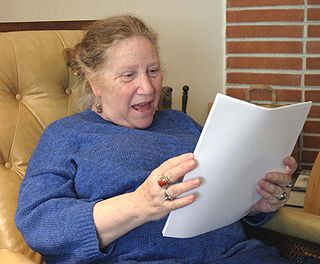Top 1200 Poet Quotes & Sayings - Page 4
Explore popular Poet quotes.
Last updated on December 11, 2024.
One more royal trait properly belongs to the poet. I mean his cheerfulness, without which no man can be a poet,--for beauty is his aim. He loves virtue, not for its obligation, but for its grace; he delights in the world, in man, in woman, for the lovely light that sparkles from them. Beauty, the spirit of joy and hilarity, he sheds over the universe.
Harriet Levin [is] a shining poet in her generation.... The dynamics of her language and her vigorous voice distinguish all her poems. Levin's fearless willingness to tackle any subject combines with her subtle intelligence to produce a rare reading experience, the moving, psychologically sophisticated and intriguing work of a poet with both guts and craft
Isn't it curious how one has only to open a book of verse to realise immediately that it was written by a very fine poet, or else that it was written by someone who is not a poet at all. In the case of the former, the lines, the images, though they are inherent in each other, leap up and give one this shock of delight. In the case of the latter, they lie flat on the page, never having lived.
When the poet's sentiments are overly visible, the audience may become uncomfortable. Japanese ritual is the opposite. By writing simply and only about what is there, the audience is drawn into the poet's world. Their imagination is stimulated, and a silent connection is established. I believe this is where the most important aspect of the Japanese sense of beauty lies.
Dante Alighieri was not only a Christian poet or a priest, he was a man. He was a real poet. We can understand that the goal of Divine Comedy is beauty. You don't need also to understand Italian or to know Italian, because when Dante's writing, when we recite Dante out loud, it explodes a cosmos of illumination like to recite music, a symphony.
I think the whole emphasis in England, in universities, on practical criticism (but not that so much as on historical criticism, knowing what period a line comes from) this is almost paralysing. In America, in University, we read - what? - T. S. Eliot, Dylan Thomas, Yeats, that is where we began. Shakespeare flaunted in the background. I'm not sure I agree with this, but I think that' for the young poet, the writing poet, it is not quite so frightening to go to university in America as it is in England, for these reasons.
It is one thing to write as poet and another to write as a historian: the poet can recount or sing about things not as they were, but as they should have been, and the historian must write about them not as they should have been, but as they were, without adding or subtracting anything from the truth.
I haven't seen any poet in this country behave nearly as rudely as Newt Gingrich or Bill O'Reilly. I'm not asking these people to approve of everyone's manners. I don't feel obliged to defend the manners of every poet who submits a poem to my web site. That's not my job. My job is to provide them with an opportunity to speak from the heart. If there's not much in the heart and if the mouth is running wild, that's not my problem.
It is necessary for us to explain the involuntary repugnance we possess for the nature and personality of the Jews. The Jews have never produced a true poet. Heinrich Heine reached the point where he duped himself into a poet, and was rewarded by his versified lies being set to music by our own composers. He was the conscience of Judaism, just as Judaism is the evil conscience of our modern civilization.
If you would get money as a writer or lecturer, you must be popular, which is to go down perpendicularly.... You are paid for being something less than a man. The state does not commonly reward a genius any more wisely. Even the poet laureate would rather not have to celebrate the accidents of royalty. He must be bribed with a pipe of wine; and perhaps another poet is called away from his muse to gauge that very pipe.
The poet must not only write the poem but must scrutinize the world intensely, or anyway that part of the world he or she has taken for subject. If the poem is thin, it is likely so not because the poet does not know enough words, but because he or she has not stood long enough among the flowers--has not seen them in any fresh, exciting, and valid way.
I thought that perhaps the most creative mix for a society would be nine parts solid worker from institutions like MIT to one part poet from Marrakech, but in spite of the fact that I myself had been trained to be one of the solid workers, which meant that all of my sympathies lay with that group, I would not surrender the poet. The problem was to find him.
My theory is that poems are written because of a state of emotional irritation. It may be present for some time before the poet is conscious of what is tormenting him. The emotional irritation springs, probably, from subconscious combinations of partly forgotten thoughts and feelings. Coming together, like electrical currents in a thunder storm, they produce a poem. ... the poem is written to free the poet from an emotional burden.
The workplace needs the poet's gift. But the poet also needs to be educated about the workplace. You're not just coming in to do your art, you're actually making yourself vulnerable. You yourself are not God's gift to truth. You have to hazard yourself in their world, especially because you're inviting people to do the same. It's all about become visible, becoming incarnate, becoming here and now and yet with our eyes on a future horizon; holding the conversation you were meant to hold.
Two opposing forces inhabit the poem: one of elevation or up-rooting, which pulls the word from the language: the other of gravity, which makes it return. The poem is an original and unique creation, but it is also reading and recitation: participation. The poet creates it; the people, by recitation, re-create it. Poet and reader are two moments of a single reality.
While the poet entertains he continues to search for eternal truths, for the essence of being. In his own fashion he tries to solve the riddle of time and change, to find an answer to suffering, to reveal love in the very abyss of cruelty and injustice. Strange as these words may sound I often play with the idea that when all the social theories collapse and wars and revolutions leave humanity in utter gloom, the poet--whom Plato banned from his Republic--may rise up to save us all.
Do you know what constitutes a great poet? He is a person without shame, incapable of blushing. Ordinary fools have moments when they go off by themselves and blush with shame; not so the great poet.... If you really have to quote someone, quote a geographer; that way you won't give yourself away. (p 44)
Gabriel Levin's book is a journey through time and through entrenched animosities of the Middle East. What's astonishing and refreshing is his ability to combine the reporter's perspective with a deep knowledge of poetry, including pre-Islamic Arab poems. A brilliant poet is at work here-a poet in the rugged landscape of conflict and pain.
I find myself absolutely fulfilled when I have written a poem, when I'm writing one. Having written one, then you fall away very rapidly from having been a poet to becoming a sort of poet in rest, which isn't the same thing at all. But I think the actual experience of writing a poem is a magnificent one.
How can one express the indefinable sensations that one experiences while writing an instrumental composition that has no definite subject? It is a purely lyrical process. It is a musical confession of the soul, which unburdens itself through sounds just as a lyric poet expresses himself through poetry...As the poet Heine said, 'Where words leave off, music begins.'
I certainly was surprised to be named Poet Laureate of this far-out city on the left side of the world, and I gratefully accept, for as I told the Mayor, "How could I refuse?" I'd rather be Poet Laureate of San Francisco than anywhere because this city has always been a poetic center, a frontier for free poetic life, with perhaps more poets and more poetry readers than any city in the world.
To evade such temptations is the first duty of the poet. For as the ear is the antechamber to the soul, poetry can adulterate and destroy more surely then lust or gunpowder. The poet's, then, is the highest office of all. His words reach where others fall short. A silly song of Shakespeare's has done more for the poor and the wicked than all the preachers and philanthropists in the world.
When a poet writes a poem, meaning arises - because the poet is not alone; he has created something. When a dancer dances, meaning arises. When a mother gives birth to a child, meaning arises. Left alone, cut off from everything else, isolated like an island, you are meaningless. Joined together you are meaningful. The bigger the whole, the bigger is the meaning.
Once a poet always a poet, and even though I haven't written poems for a long time, I can nonetheless say that everything I've ever learned about writing lyrical fiction has been informed by three decades of writing in lines and stanzas. For me the real drama of fiction is almost always the drama of the language.
My first advice would be to read, read, read, which sounds interesting coming in a digital age, but it's so much easier to listen to a poem than it is to sit down and actually read it and to hear it in your head and that is something that every poet or aspiring poet needs to be able to do, I think to hear it in their head.
A poet’s freedom lies precisely in the impossibility of worldly success. It is the freedom of one who knows he will never be anything but a failure in the world’s estimation, and may do as he pleases. The poet is a man on the sidelines of life, sidelined for life. He belongs to the aristocracy of the outcast, the lowest of the low, below the salt of the earth. A member of the most ancient regime in the world. One that cannot, it seems, be overthrown.
In your language you have a form of poetry called the sonnet…There are fourteen lines, I believe, all in iambic pentameter. That’s a very strict rhythm or meter…And each line has to end with a rigid pattern. And if the poet does not do it exactly this way, it is not a sonnet…But within this strict form the poet has complete freedom to say whatever he wants…You’re given the form, but you have to write the sonnet yourself. What you say is completely up to you.
A young poet in America should not be advised at the outset to give up all for the Muse-to seclude himself in the country, to live hand from mouth in Greenwich Village or to escape to the Riviera. I should not advise him even to become a magazine editor or work in a publisher's office. The poet would do better to study a profession, to become a banker or a public official or even to go in for the movies.
Genius in the poet, like the nomad of Arabia, ever a wanderer, still ever makes a home where the well or the palm-tree invites it to pitch the tent. Perpetually passing out of himself and his own positive circumstantial condition of being into other hearts and into other conditions, the poet obtains his knowledge of human life by transporting his own life into the lives of others.
A poet is an unhappy creature whose heart is tortured by deepest suffering but whose lips are so formed that when his sighs and cries stream out over them, their sound beomes like the sound of beautiful music . . . . And men flock about the poet saying, Sing for us soon again; that is to say, may new sufferings torture your soul, and may your lips continue to be formed as before.
The fact that I'm a woman is as important to my work as a poet as the fact that Ahmad Sh?mlu was a man was important to his work as a poet. Basically, gender shouldn't be viewed as an advantage in art. If a poem or a piece of writing is good, what difference does it make whether it's by a woman or a man? And, if it's bad, why should its writer's gender make it good?
I am not sure, once a poet has found out what has been written already, and how it was written - once, in short, he has learnt his trade - that he should bother with literature at all. Poetry is not like surgery, a technique that can be copied. Every operation the poet performs is unique, and need never be done again.
Imagination in a poet is a faculty so wild and lawless that, like a high ranging spaniel, it must have clogs tied to it, lest it outrun the judgment. The great easiness of blank verse renders the poet too luxuriant. He is tempted to say many things which might better be omitted, or, at least shut up in fewer words.
Poetry is probably the one field of writing in which it is a mistake to try to psych out editors. In fact, specific marketing advice can sometimes harm the novice poet by enticing him to pursue fashions. The poet's best hope is to sound like nobody else, The finest, most enduring poetry constructs a marketplace of its own.
The very idea of a bird is a symbol and a suggestion to the poet. A bird seems to be at the top of the scale, so vehement and intense his life. . . . The beautiful vagabonds, endowed with every grace, masters of all climes, and knowing no bounds - how many human aspirations are realised in their free, holiday-lives - and how many suggestions to the poet in their flight and song!
It has been observed before that images, however beautiful, though faithfully copied from nature, and as accurately represented in words, do not of themselves characterize the poet. They become proofs of original genius only as far as they are modified by a predominant passion; or by associated thoughts or images awakened by that passion; or when they have the effect of reducing multitude to unity, or succession to an instant; or lastly, when a human and intellectual life is transferred to them from the poet's spirit.
I began writing for kids because I wanted to effect a change in American society. I continue in that spirit. By the time we reach adulthood, we are closed and set in our attitudes. The chances of a poet reaching us are very slim. But I can open a child's imagination, develop his appetite for poetry, and more importantly, show him that poetry is a natural part of everyday life. We all need someone to point out that the emperor is wearing no clothes. That's the poet's job.
So, then, the best of the historian is subject to the poet; for whatsoever action or faction, whatsoever counsel, policy, or war-stratagem the historian is bound to recite, that may the poet, if he list, with his imitation make his own, beautifying it both for further teaching and more delighting, as it pleaseth him; having all, from Dante’s Heaven to his Hell, under the authority of his pen.
I am NOT an anarchist. Never have been, never will be. Just because Crimethinc put out two of my poetry books, I am labeled everywhere as an anarchist poet. I am a poet, yes. Not an anarchist. I have no formulated political philosophy other than a general feeling of disgust for the majority of the human race.
What is a poet? An unhappy man who hides deep anguish in his heart, but whose lips are so formed that when the sigh and cry pass through them, it sounds like lovely music.... And people flock around the poet and say: 'Sing again soon' - that is, 'May new sufferings torment your soul but your lips be fashioned as before, for the cry would only frighten us, but the music, that is blissful.
Jacob wrote that the true poet 'is like a man who is happy anywhere, in endless measure, if he is allowed to look at leaves and grass, to see the sun rise and set. The false poet travels abroad in strange countries and hopes to be uplifted by the mountains of Switzerland, the sky and sea of Italy. He comes to them and is dissatisfied. He is not as happy as the man who stays at home and sees the apple trees flower in spring, and hears the small birds singing among the branches
I think the poet is the last person who is still speaking the truth when no one else dares to. I think the poet is the first person to begin the shaping and visioning of the new forms and the new consciousness when no one else has begun to sense it; I think these are two of the most essential human functions.
The poet's, the writer's, duty is to write about these things. It is his privilege to help man endure by lifting his heart, by reminding him of the courage and honor and hope and pride and compassion and pity and sacrifice which have been the glory of his past. The poet's voice need not merely be the record of man, it can be one of the props, the pillars to help him endure and prevail.



